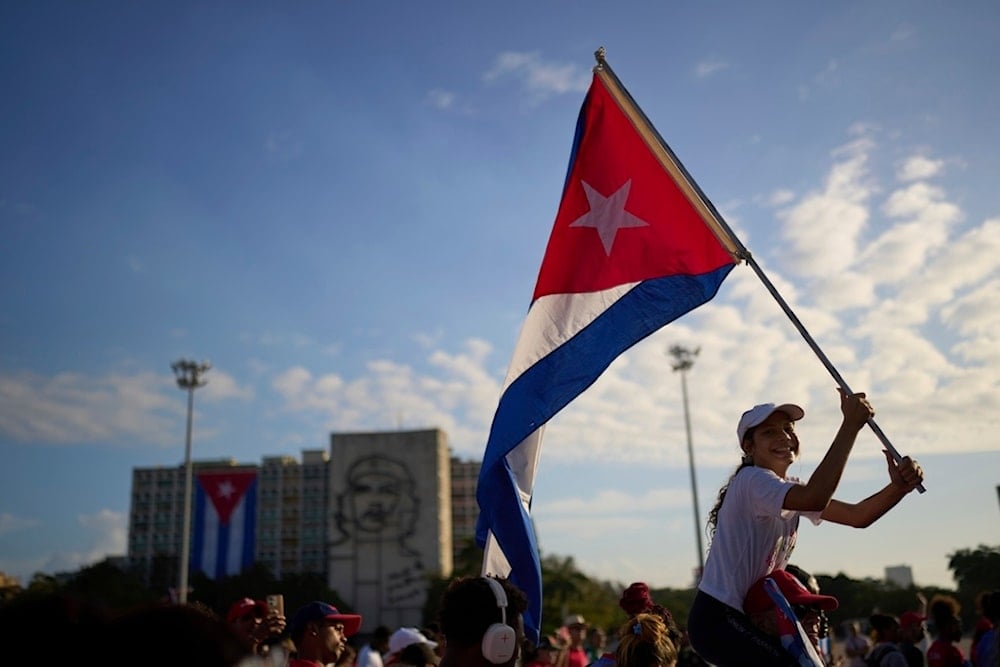Cuban PM details economic strains, key reform strategy
Cuban Prime Minister Manuel Marrero Cruz outlines the country’s economic performance during the first half of the year and presents a roadmap for the months ahead.
-

A student waves a Cuban national flag during the May Day parade at Revolution Square in Havana, Cuba, on May 1, 2025. (AP)
Cuban Prime Minister Manuel Marrero Cruz delivered a detailed address before the National Assembly of People’s Power, outlining the country’s economic performance during the first half of the year and presenting a roadmap for the months ahead. He said that the nation’s current economic context is a “war economy” imposed by the tightening US blockade.
Inflation slows but remains a burden
Marrero reported that Cuba’s annual inflation rate reached 14.75%, significantly below the earlier projection of 30%. While this indicates a deceleration in inflation, he cautioned that prices remain high and continue to impact the population’s purchasing power and living conditions.
Partial dollarization continues
Despite a formal government strategy aimed at ending dollarization, Marrero confirmed the continuation of a policy he termed “partial dollarisation.” He stressed that collecting foreign currency and directing it toward social programs is essential under current economic conditions.
In addition, the government has approved a comprehensive plan to reform the national foreign exchange market. This includes the modernization of monetary systems across all regions and the implementation of a clear communication strategy to explain these reforms to the public.
Read more: Cuba says new US sanctions will not 'bend the will of the people'
Foreign currency access crucial to economic stability
The prime minister underlined that securing sufficient foreign currency remains a prerequisite for implementing Cuba’s broader economic strategy. He highlighted efforts to attract foreign investment by simplifying administrative procedures and encouraging cooperation between state enterprises and the non-state private sector.
Housing and construction
Addressing the ongoing housing crisis, Marrero acknowledged that 53% of the national housing plan was implemented in the first half of the year. He attributed this shortfall to persistent shortages in raw materials and fuel, as well as the limited domestic production of construction supplies.
Read more: Cuba accuses US envoy of violating diplomatic norms, issues warning
Government priorities for the second half of 2025
Looking ahead, Marrero outlined the government's objectives for the remainder of the year. These include pushing forward monetary reforms, boosting exports and foreign investment, expanding food production, and improving tax and wage policies. The government also aims to reduce power outages and enhance water supply systems.
US blockade is the key obstacle
Marrero pointed to the US government, particularly policies carried over from former President Donald Trump's administration, as a key factor negatively affecting the Cuban economy. He stressed Washington's intensification of the blockade, obstructing imports, and intimidating Cuba’s trading partners to deter investment.
The prime minister concluded his remarks by calling for national unity in confronting the difficult conditions. While acknowledging ongoing challenges, especially in electricity supply and inflation, he expressed confidence in Cuba’s ability to defend the achievements of the revolution and continue building a more just and stable society.
Read more: Trump reinstates hardline Cuba policy, reverses Biden-era measures

 3 Min Read
3 Min Read










